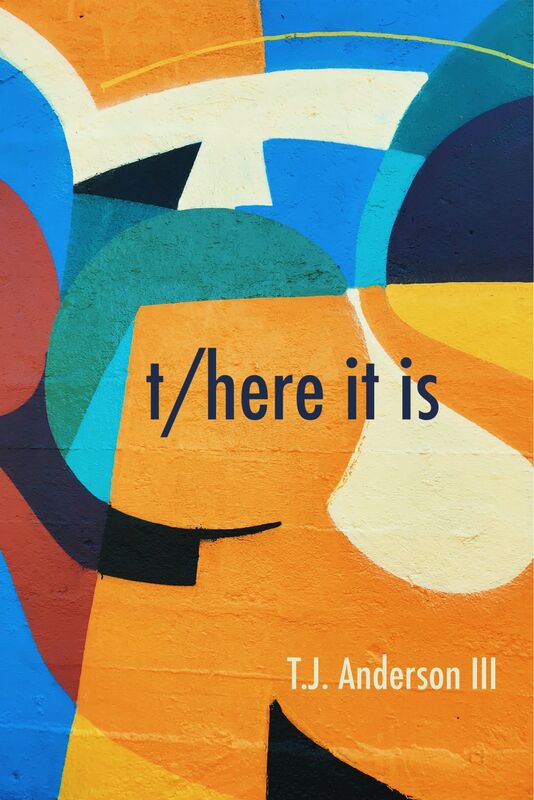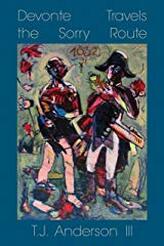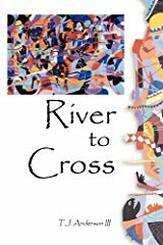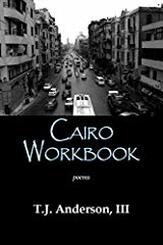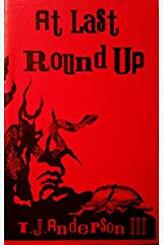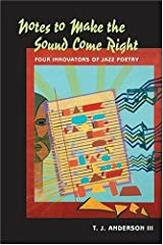t/here it is
A poetry collection in nine sections that each take on an aspect of memory. The poems in t/here it is take multiple forms as each section reflects on variations of experience, engaging with the simultaneity of historic and present time while yearning for a future that is beyond what we can envision. In Section I, the poet grapples with ancestral legacy and connection to the natural world. Section II deals with the way one traverses the urban landscape and with various strategies of survival, and Section III recalls the observations and experiences of youth. Through nine linked poems, Section IV complicates the idea of witness under a capitalistic system bent on exploitation and devaluing the sacred human experience. Section V speaks to the lost opportunity of making profound human connections during the race to acquire more material goods. In Section VI, the poems take on the domestic and institutional places that govern our lives. A single poem forms Section VII, mapping the intersection between jazz and emotion. With Section VIII, Anderson pays homage to jazz greats and reflects on the ways that listening can carry one back to moments of growth and lamentation. The two poems that close out the book in Section IX bring the reader to a place of vulnerability, expressing the desire to be able to discern the multiple avenues of one’s journey with awareness.
Devonte Travels the Sorry Route
Devonte, the eponymous subject of the poems in Devonte Travels the Sorry Route, has a gift: he can travel across space and time. This extraordinary quality brings Devonte into contact with a broad array of events and phenomena from black history and culture. Unlike most of us, who perceive of history as a sequence of fleeting events, Devonte is able to experience all of his diverse travels to varied historical epochs and places simultaneously, and in doing so is able to become a “stalker of history,” chasing down the elusive narratives that have been erased or ignored by the building of empires and the destruction of ecosystems. As fantastical as this account seems, in these poems, T.J. Anderson III captures a critical aspect of the ways identity is formed through community and collective memory, particularly among the peoples of the African diaspora. The way the words expand across the page enacts this polyvocal coalescing, and the blank space in between evokes the vast oceans that first separated and continue to resonate in the collective imagination of the Black community. At the same time that he relates the difficulty of crossing vast expanses of time and space to connect with our history, in these gripping poems Anderson proposes that the past is never far off—in fact, like Devonte, it lives in our own personalities and experiences today.
You can find a review of Devonte here.
River to Cross
"Fueled with ecstatic rage and syncopated with jazzed-up pistons and B-bop timing belts, T. J. Anderson's RIVER TO CROSS is a long ride and deep plunge into the American subconscious. Lyrical, linguistically inventive, and deadly serious, Anderson wields surrealism to create surprising metaphors and revelatory dream symbols for our age, for the struggles our spirits and bodies engage. Attuned to 'you who are off' and taking the pulse of 'that red bud that brews/the blood in bloom,' RIVER TO CROSS is a momentous achievement worthy of our attention and celebration"—Khaled Mattawa.
Cairo Workbook
"In TJ Anderson’s Cairo Workbook, the poems render the city of Cairo in the way an astute filmmaker might focus their lens on the nuances of light. In the poems gathered here the reader is exposed to a complex articulation of the intersectionality of Africa and African America, a subject rarely approached in poetry. We hear the cadences of jazz colliding with the car horns and street calls of Cairo, the daily exchange of black and brown. The details and corners are what matter here. Characters illuminating the heart of the city as one might find in the burgeoning alleys of a Cairo neighborhood, or perhaps in the detailed streets of their own imagination.” ~Matthew Shenoda, author of Tahrir Suite
At Last Roundup
A limited edition chapbook of poems that employ jazz and surrealist tropes to explore and engage with African American culture.
Notes to Make the Sound Come Right
In “When Malindy Sings” the great African American poet Paul Laurence Dunbar writes about the power of African American music, the “notes to make the sound come right.” In this book T. J. Anderson III, son of the brilliant composer, Thomas Anderson Jr., asserts that jazz became in the twentieth century not only a way of revising old musical forms, such as the spiritual and work song, but also a way of examining the African American social and cultural experience. He traces the growing history of jazz poetry and examines the work of four innovative and critically acclaimed African American poets whose work is informed by a jazz aesthetic: Stephen Jonas (1925?–1970) and the unjustly overlooked Bob Kaufman (1925–1986), who have affinities with Beat poetry; Jayne Cortez (1936– ), whose work is rooted in surrealism; and the difficult and demanding Nathaniel Mackey (1947– ), who has links to the language writers. Each fashioned a significant and vibrant body of work that employs several of the key elements of jazz. Anderson shows that through their use of complex musical and narrative weaves these poets incorporate both the tonal and performative structures of jazz and create work that articulates the African journey. From improvisation to polyrhythm, they crafted a unique poetics that expresses a profound debt to African American culture, one that highlights the crucial connection between music and literary production and links them to such contemporary writers as Michael Harper, Amiri Baraka, and Yusef Komunyakaa, as well as young recording artists―United Future Organization, Us3, and Groove Collection―who have successfully merged hip-hop poetry and jazz.
